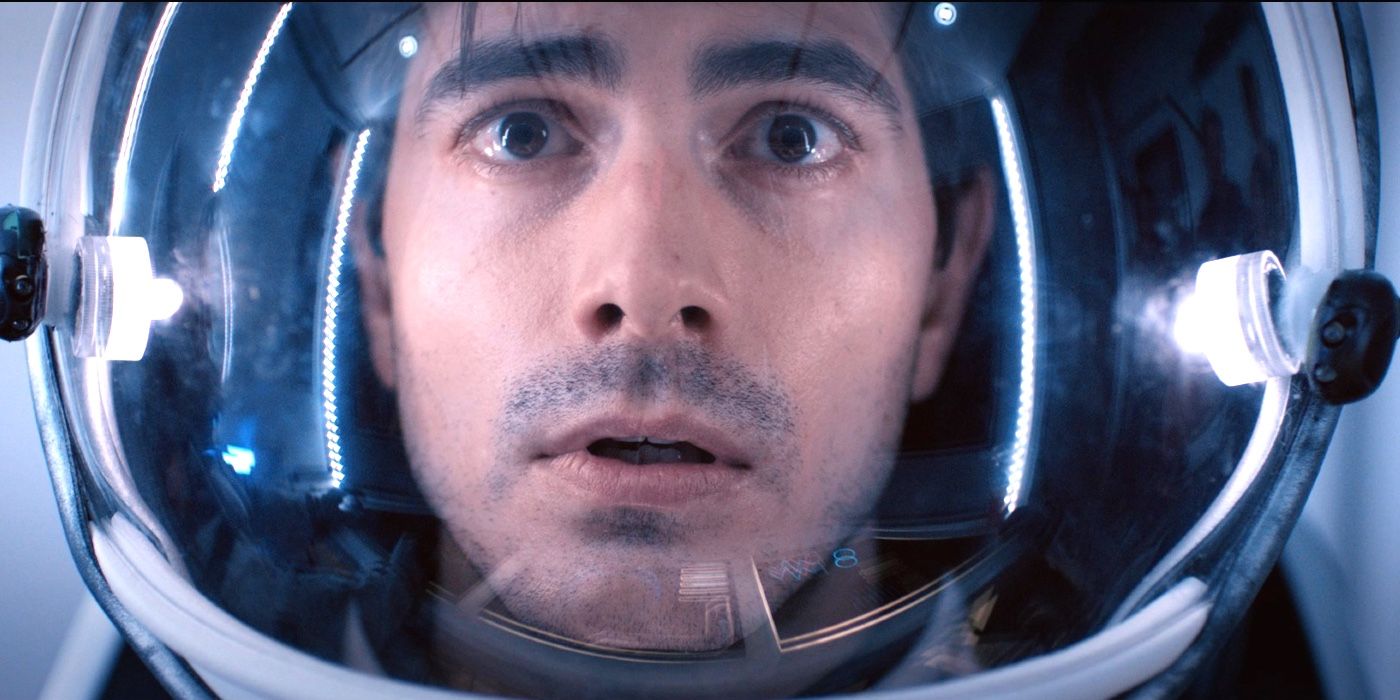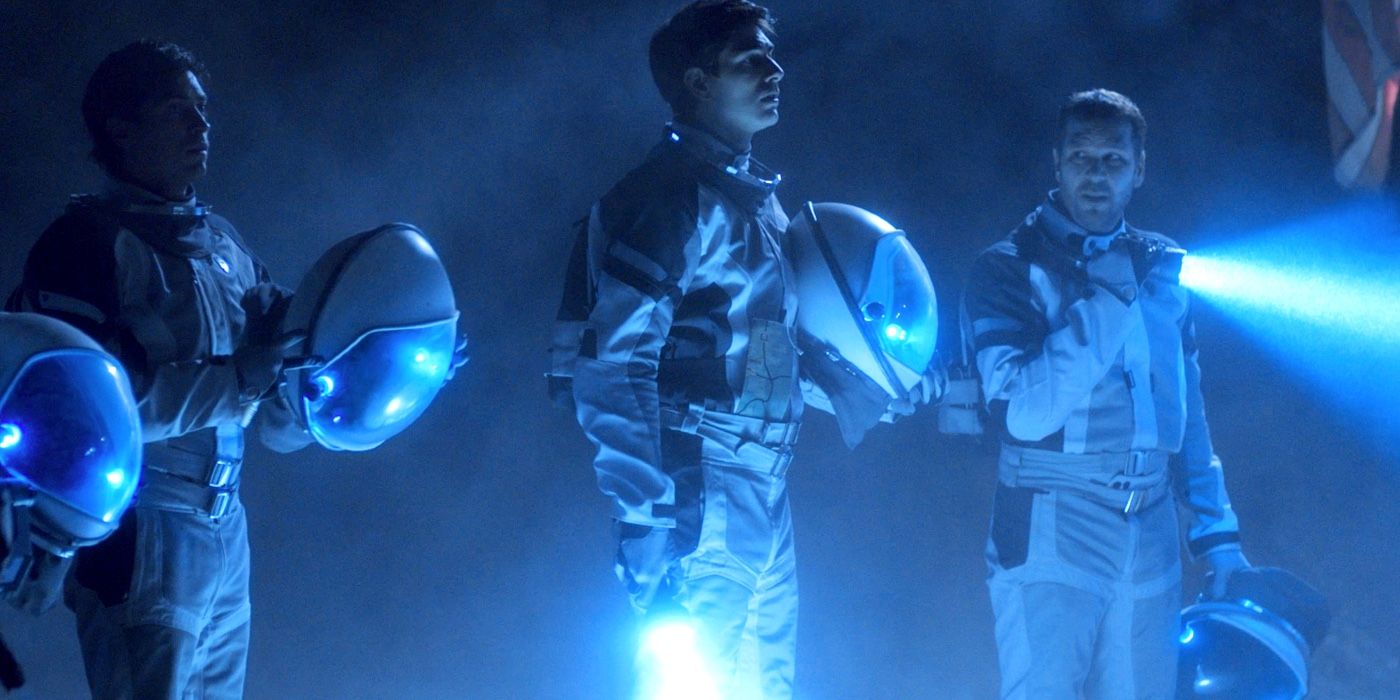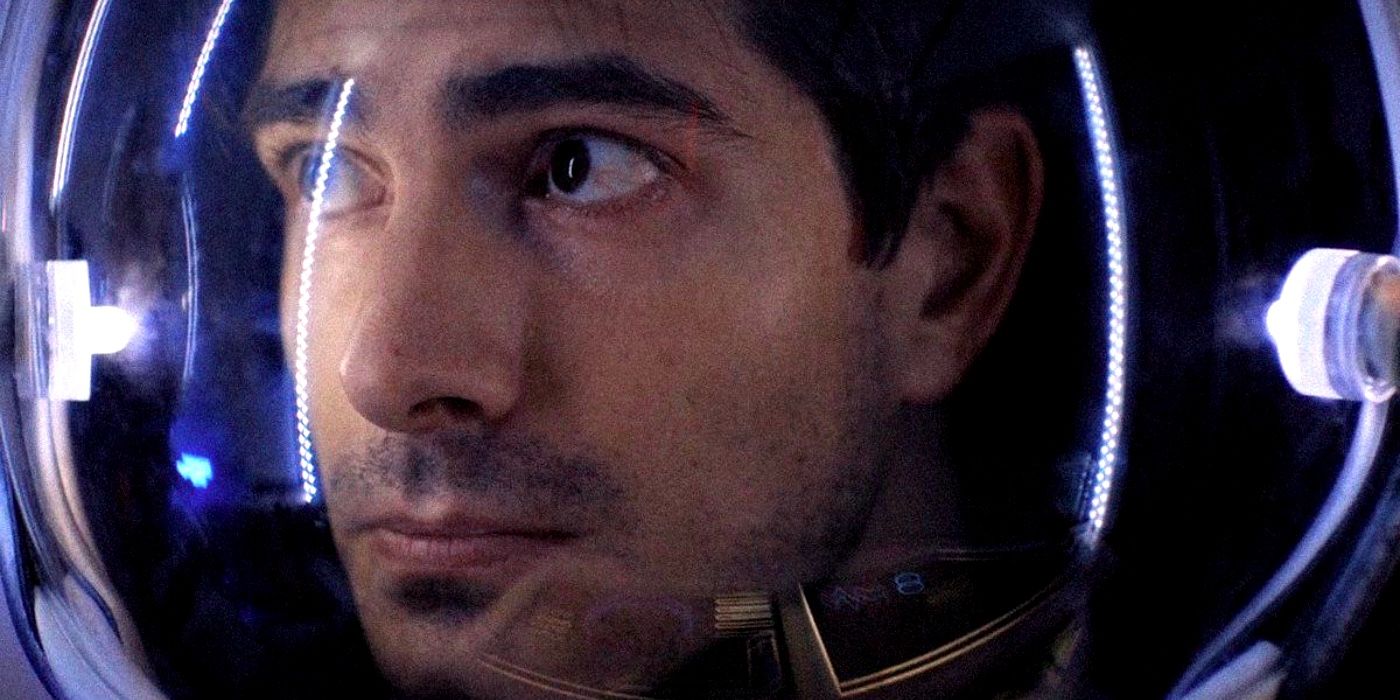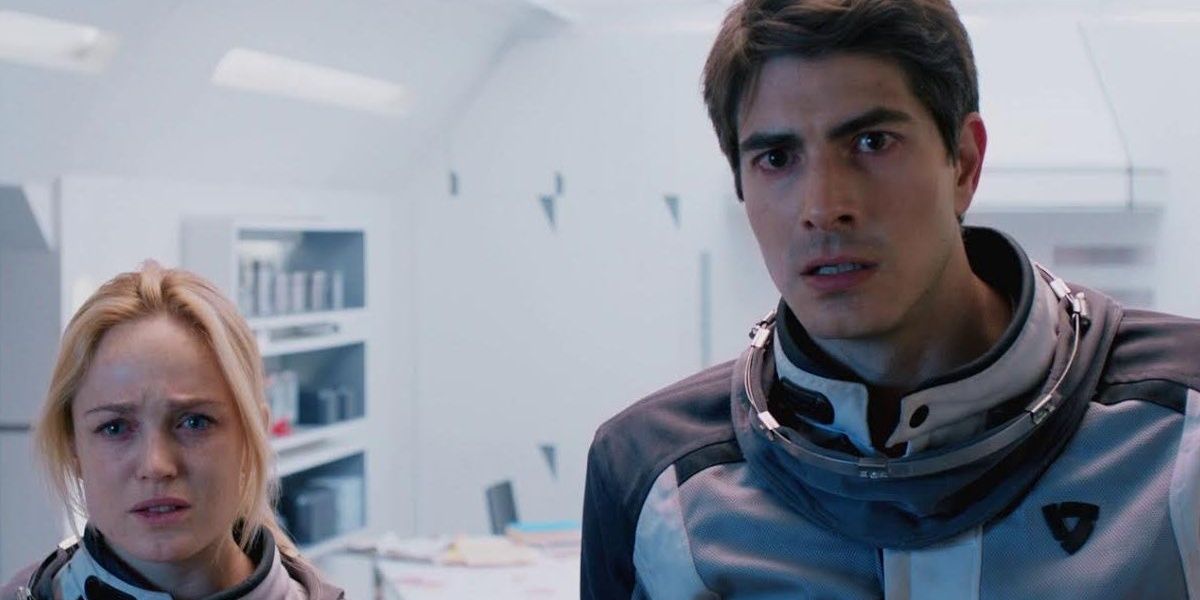In Matt Osterman’s 2016 sci-fi mystery 400 Days, four aspiring astronauts embark on a simulated deep space travel mission that requires them to remain aboard a mock spacecraft underground for 400 days, but the 400 Days ending left the audience disoriented. The crew faces troubling situations one after the other until they are forced to leave the ship into a seemingly post-apocalyptic world. They are increasingly unable to determine what’s real and what’s not, and the true purpose of their mission eludes them. By the end of the film, audiences are left with more questions than answers.
As expected, the crew grapples with the psychosocial effects of their isolation. The crew members all suffer from personal issues, hallucinations, and hidden secrets from each other. On top of that, the ship’s doctor seems to know more about the mission than she claims. Also, as expected, they must deal with unforeseen problems, including the loss of contact with mission control, the disruption of their power and oxygen supply, and more. They assume that each obstacle is part of the simulation until Emily has a near-death experience and a sickly intruder mysteriously appears and disappears. At that point, they discover a post-apocalyptic world aboveground and meet Zell (Tom Cavanagh), the odd proprietor of a diner in a desolate town.
Was It All A Simulation?
Sadly, by 400 Days ending, the outcome is unknown. The film’s events were either all a simulation, which would make it extremely unethical, or a cataclysmic event really did occur. Due to its open-ended nature, audiences have to be at peace with not knowing, which is the whole point of the movie. In the film, as in life, some things are just out of reach. The silver lining is that viewers get the opportunity to decide. Despite the fact that the 400 Days ending isn’t made concise or clear as far as exactly what happened in the movie, it’s possible to find solace in the fact that speculating is just as entertaining as knowing the truth.
What Was The Mission’s True Purpose?
The true purpose of the mission is one of the 400 Days ending’s central mysteries. Here, again, audiences are left with very few answers. The ending allows them to either take the mission’s stated purpose at face value or assume it was an elaborate ruse with a deeper, hidden objective. If it’s taken at face value, it seems poorly conceived. As audiences get to know the crew, they reveal aspects of themselves that would likely disqualify them from such a mission.
For example, Theo woke up on launch day with a hangover because he childishly went on a four-day bender, and his relationship with Emily (who may be addicted to pills) is an obvious conflict of interest. Bug has clearly experienced some kind of loss or trauma. Cole is a sexual predator who has anger issues. How these characters qualified for the mission is mystifying, unless, of course, the mission’s true purpose was concealed from the start.
The Real Meaning Of 400 Days: Who Can We Trust?
If one goes looking for answers, the film’s characters are no help. As Zell says in the diner, it’s impossible to trust anybody. Each member of the crew seems to be hiding something, with the possible exception of Theo, though he is clearly irresponsible. Cole and Bug are losing their minds. Emily is keeping at least one secret, and Walter warns them that their careers will be over if they quit the mission early, which seems not only unethical but also highly unscientific. Then, there is the question of the possibility of a post-apocalyptic society.
In a film so mired in uncertainty, it’s nice to be certain of something. The certainty stems from the real meaning behind the movie; in the scientific pursuit of knowledge, many people are often willing to sacrifice the very thing that compels them to reach for the stars—our humanity. The 400 Days ending acts as a warning. The willingness to pursue knowledge at any cost will be humanity’s downfall, whether the actual events depicted are a simulation or not.
How Director Matt Osterman Explains The 400 Days Ending
Director Matt Osterman has talked about his movie at length, and he touched on what he sees as the 400 Days ending and what it all could mean. When directly asked about the ending and its meaning (via Borrowing Tape), Osterman said, “I’d be giving it all away if I put it together for the audience, but the clues are all there if they want to find an answer! The actual ending to me is when Theo and Emily hold hands.” As Osterman believes, it isn’t so much the mystery of the real world that matters in his story, but the story of Theo and Emily and their relationship.
Osterman also admitted that the 400 Days ending was controversial, but he feels that helped his independent movie get more eyes on it. When talking about luring in a cast that included Caity Lotz, Brandon Routh, Ben Feldman, and Dane Cook, he said they loved the script and saw something special in it (via Sci-Fi Pulse). “The ending is a bit controversial, but I think that’s what made it special. The story respects the audience enough to let them think for themselves and I think the actors were drawn to that.”





